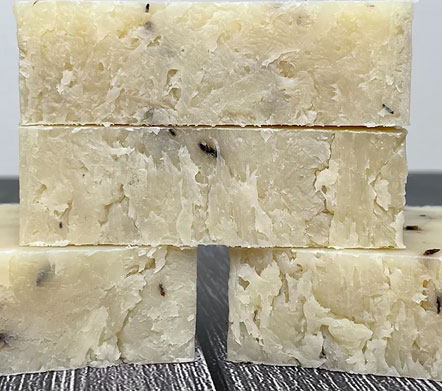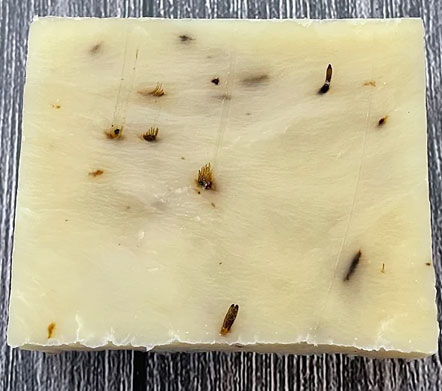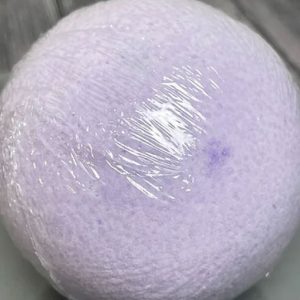Description
Product Ingredients
Saponified Oils (Olive Oil, Organic Sustainable Palm Oil, Organic Coconut Oil, Organic Shea Butter), Water, Sodium Hydroxide.
RETURN & REFUND POLICY
Returns & exchange
100 percent money-back guarantee.
If you’re not happy with our soap, we’re not happy.
Shipping
Orders ship within 2 to 3 days of receipt. All orders ship by 4 p.m. from Waconia, MN. Orders usually arrive within 3 to 10 days of shipping.
History of Lavender Oil
History of Lavender Oil
Today, Bulgaria is the biggest producer of lavender worldwide. However, lavender has been used for at least the last 2500 years by the Egyptians and Romans. There is considerable anecdotal evidence to suggest that these civilizations used lavender as an:
- Antibacterial
- Antifungal
- Smooth muscle relaxant
- Antidepressive
- Sedative
When archaeologists opened King Tut’s tomb in 1923, a faint scent of lavender filled the room. In the stories of the Bible, lavender was used for anointing and healing, and the Romans used lavender for cosmetics, cooking, and purifying the air.
How Lavender Essential Oil Is Made
Pure lavender oil is steam distilled: a process where the flowers are compacted into a still and a boiler is used to steam them at very low pressure. Next, cold water is run through the center of the still, causing the hot oil to condense before being collected.
Topically
Lavender oil is known to reduce skin inflammation, speed wound healing, and treat musculoskeletal pain when applied topically. Take a drop or two of pure lavender oil and rub it into the affected area. You can also try mixing it with carrier oils like almond oil, hemp seed oil, jojoba oil, or coconut oil. The fats in these oils soften the skin and extend lavender’s effects. You may also want to try soaking your feet. A 2015 study found that a lavender cream foot bath can reduce stress, anxiety, and depression in postpartum women.
Aromatically
Most lavender studies are about aromatherapy. Add two drops of lavender oil to half a cup of water, load it into a spray bottle, shake it up, and spray it around the room. It makes for a great non-toxic, antibacterial air freshener.
Lavender Has Potent Anti-Inflammatory, Antioxidant, Antibacterial, and Antimicrobial Properties
The phytochemicals in lavender possess several wellness advantages. Here’s what the research has to say:
- A 2017 study found that linalyl acetate and linalool can inhibit inflammatory agents that cause asthma.
- In a 2018 animal study, lavender oil effectively reduced carrageenan-induced swelling in the paws of rodents.
- Pet turtles are known to harbor bacteria that can be harmful to humans. Luckily, a 2017 study found that, “[Lavender oil] has a potential to be used as an antibacterial agent against pathogenic bacteria isolated from pet turtles.”
- In a 2018 study, researchers added lavender oil to the drinking water of broiler chickens. It displayed antimicrobial activities and helped the chickens grow faster.
- A 2015 animal study found that lavender oil can reduce ear swelling, pain, and inflammation in carrageenan-induced pleurisy and ear edema.
Together, these diverse pharmacological properties can translate into some exceptional health benefits.
5 Health Benefits of Lavender Essential Oil
Home owners love lavender because of its floral aroma, but researchers love it for its neurological effects. On top of that, the studies keep piling up, and lavender’s health benefits go well beyond the nervous system.
Research suggests that lavender oil has beneficial impacts on mental health, pain management, digestion, skin, and hair.
1. Reduce Stress
Acute stress is the body’s natural response to short-term threats, but chronic stress can cause serious health problems. That’s because chronic stress can boost cortisol, elevate heart rate, and damage the gut lining. But lavender, as it turns out, can decrease cortisol and normalize bodily functions. A 2012 human study found that, “Lavender oil caused significant decreases of blood pressure, heart rate, and skin temperature, which indicated a decrease of autonomic arousal. Similarly, a 2007 study found that inhaling lavender essential oil can decrease salivary cortisol. But what happens under truly stressful conditions? Can lavender still keep you calm when the stakes are high?
The research says, yes.
A 2012 study found that lavender oil aromatherapy can change anxiety-related behavior in stress-loaded rodents. Additionally, when 30 healthy volunteers were treated with either lavender oil aromatherapy or a placebo, the lavender group reported lower stress and less pain during needle insertion.
2. Treat Anxiety
Anxiety disorders are some of the most common mental health conditions worldwide. Unfortunately, current first-line treatments have lots of downsides, like delayed therapeutic effects, dependence, withdrawal, and abuse potential. Thankfully, several clinical studies indicate that lavender oil may be an effective treatment for anxiety. In fact, the European Medicines Agency (EMA) has already approved lavender as an herbal medicine to relieve stress and anxiety.
Here’s what the research has to say about lavender and anxiety:
- A 2018 rodent study published in the journal Molecules found that intravenous lavender oil can counteract social aversion.
- A 2019 human study found that inhaling lavender oil before breast surgery can decrease anxiety in patients.
- A 2014 human study in the International Journal of Neuropsychopharmacology found that oral lavender oil can be more effective than the prescription medication paroxetine at treating generalized anxiety disorder (GAD).
What makes it so effective?
Two of lavender’s primary terpenoids, linalyl acetate and linalool, may reduce anxiety by affecting the production of serotonin and glutamate.
3. Fight Depression
Lavender may also be an effective treatment for some forms of depression. In a 2012 study, 28 high-risk postpartum women were treated with either a placebo or lavender and rose oil aromatherapy twice a week for four consecutive weeks. By the end of the study, the essential oil group reported a significantly greater improvement in depression symptoms.
A 2016 study arrived at a similar conclusion: 140 postpartum women were divided into a lavender group and a control group. The lavender group was asked to inhale lavender every eight hours for four weeks. By the end of the experiment, depression scores were significantly lower in the lavender group. Researchers concluded that, “Inhaling the scent of lavender for 4 weeks can prevent stress, anxiety, and depression after childbirth.”
Animal studies have arrived at similar results: in a 2019 Chinese study, researchers induced depression in rats by injecting them with corticosterone. The rats were then treated with oral lavender. According to researchers, “Results showed that treatment with LEO (lavender essential oil) ameliorated the depression-like behavior induced by the chronic administration of corticosterone.”
4. Relieve Pain
Yes, lavender oil seems to be an effective natural painkiller too. When rubbed into the skin, studies show that it can reduce neuropathic pain, osteoarthritic pain, and menstrual pain. Additionally, lavender oil aromatherapy can reduce the pain of needle insertions. For example, a 2019 human study found that, “A low concentration of lavender oil inhalation can reduce the pain and improve soothing in the infants with the pentavalent vaccine injection.”
5. Improve Sleep
Sleep is essential to overall health. It’s when the body repairs damaged cells and the brain removes waste products. Thankfully, the calming properties of lavender may also promote better sleep.
For example, a 2015 study found that lavender oil can improve the sleep quality of postpartum mothers. Half of the 158 patients were treated with lavender aromatherapy before bed four times a week for two months. Ultimately, the lavender group showed greater improvements in sleep quality compared to the control group.
A study published in the journal Early Human Development found that lavender oil baths can promote sleep in very young infants. At the same time, a single-blind, randomized Japanese study found that nighttime exposure to lavender aroma can reduce morning grogginess. The real bonus, however, is that unlike some natural sleep aids like melatonin, lavender displayed zero unwanted side effects.
Other Health Benefits of Lavender Essential Oil
But lavender oil’s health benefits don’t stop there. It may also support:
Skin healing: for centuries, lavender oil has been celebrated for its remarkable wound healing abilities and may also treat atopic dermatitis.
With that said, a 2019 report found that lavender can trigger skin irritation in some individuals. If you have a history of skin sensitivities, it’s best to ask for medical advice before beginning lavender oil treatment.








Reviews
There are no reviews yet.